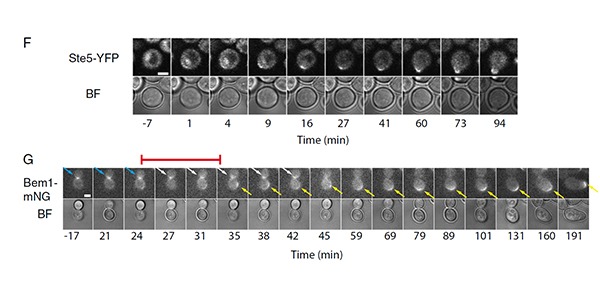UW Bioengineering associate professor Albert Folch, Folch lab senior fellow Nirveek Bhattacharjee and collaborators at Fred Hutchinson Cancer Research Center and the University of Buenos Aires in Argentina have published research in the early online edition of the Proceedings of the National Academy of Sciences (PNAS).
The researchers sought to understand how cells use systems-level mechanisms to process environmental information. They produced chemical gradients in yeast using the Folch lab’s “microjet” gradient generators. Examining the action and timing of the cells’ response, they found that cells could distinguish ligand concentrations supposedly too high to be told apart apart by using early, or “pre-equilibrium”, information about their environment.
The researchers propose that this mechanism, called pre-equilibrium sensing and signaling, or PRESS, is present in many cell signaling systems throughout biology. The research shows a promising example of how microfluidics can be used to expose cells to complex signals, a major goal in systems biology studies.


